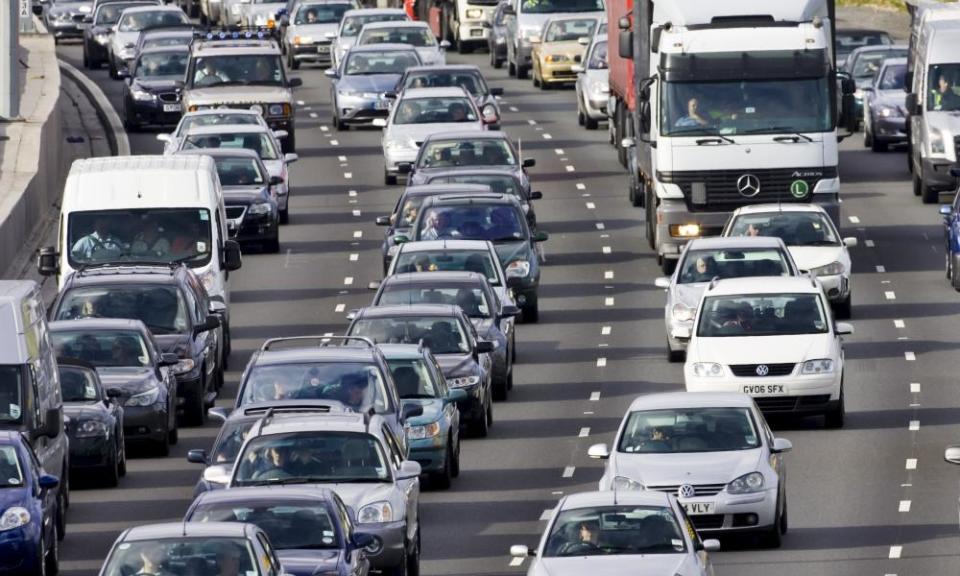Only lower speed limits will solve traffic problems | Letters

Lower, properly enforced speed limits are the key to tackling all the costs and nuisances of traffic (Letters, 25 March). A report from the Policy Studies Institute in 1996 concluded that speed limits on main roads should be reduced, with the speed limit on motorways certainly no higher than 60mph. The immediate consequence of strict enforcement of lower limits would be reductions in road crashes and casualties, fuel consumption, CO2 emissions and noise. Capacity would be increased. Traffic levels would be reduced by checking and then reversing the tendency for car journeys and lorry hauls to increase in length.
The default speed limit in towns should be 20mph. Combined with bus priorities, measures to make walking and cycling safer and more agreeable, and planning policies to encourage smaller, local shops and other facilities, lower speeds in towns would have a profound influence on modal choice and journey length. The best way of enforcing speed limits is by variable speed limiters on the vehicle. They can either be operated by the driver or activated externally. Both types of speed limiter have been shown to be technically feasible and inexpensive.
By far the biggest obstacle to more rapid progress in tackling all the adverse impacts of road traffic is the amazing cowardice of successive governments on anything to do with speed limits and their enforcement.
Stephen Plowden
London
• Instead of inconveniencing driverless cars (Letters, 20 March) with largely one or two upscale individuals in them working while transiting in their mobile office, perhaps the flipside would be to give priority to the larger people flow made possible by pedestrians and bicycles not having to wait on idling automobiles going through their stop and go cycles. What law of nature requires that a machine-transported individual has innate priority over a pedestrian, or that the business or activity of a pedestrian is of less value than the time of a motorist? We might well discover an economic boost if large numbers of pedestrians did not have to waste time waiting on lights at intersections.
John Hannah
Columbus, Nebraska, USA
• Zoe Williams gave a 9/10 rating to a diesel car (Weekend, 25 March). And she has form on this, regularly reviewing cars as eco-friendly merely because of the ludicrously inaccurate CO2 figures published by manufacturers. Please will a science journalist, or a journalist who cycles to work and knows how poisonous NOX and PM10 are, explain that there is nothing “eco” or atmosphere-friendly about a diesel car. It is bad enough that the government refuses to ban them. But that the Guardian regularly commends them to its readers, and carries adverts for them, adds insult to injury.
Professor Michael Northcott
Edinburgh
• Join the debate – email guardian.letters@theguardian.com
• Read more Guardian letters – click here to visit gu.com/letters

 Yahoo Finance
Yahoo Finance 